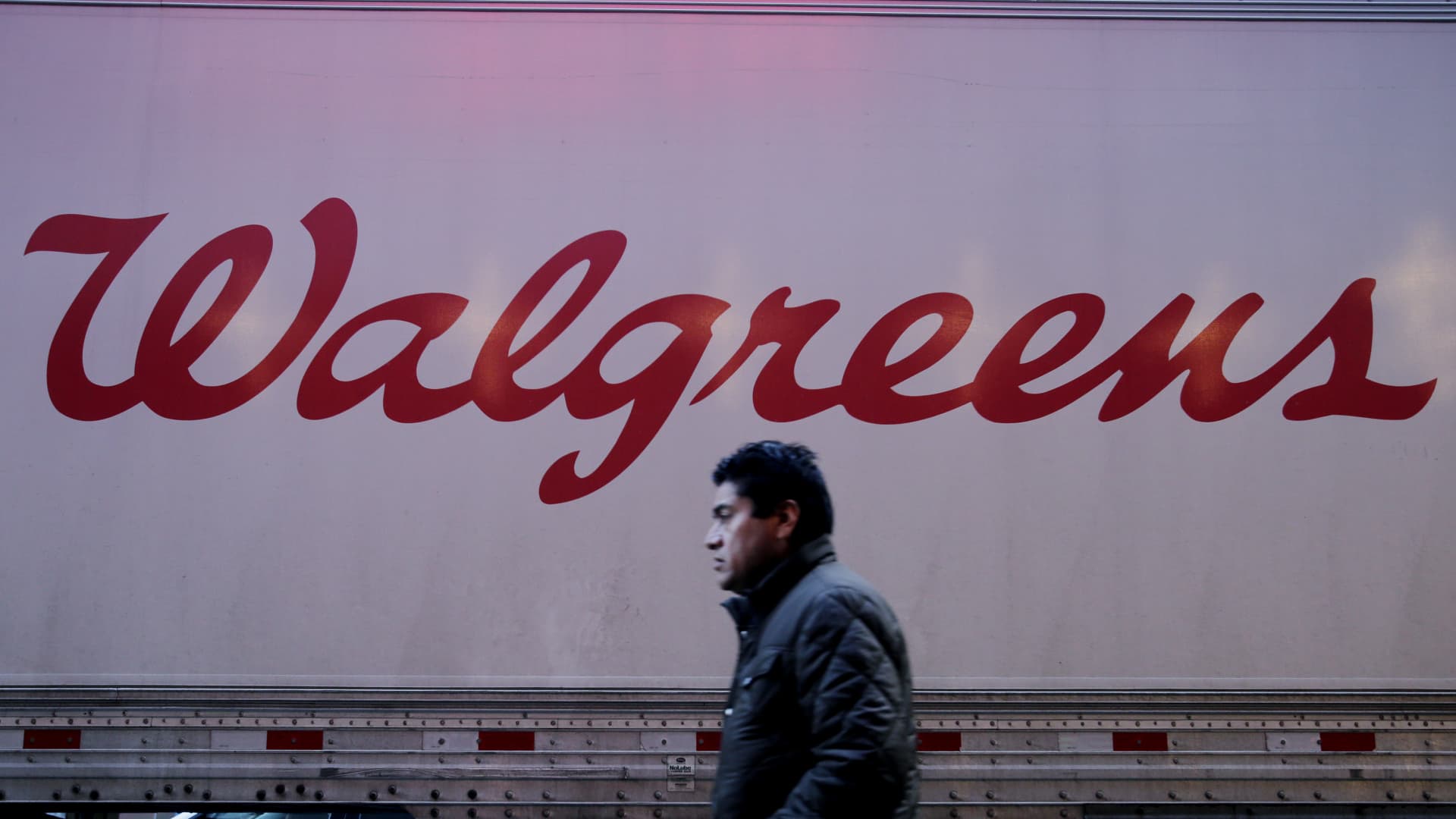Walgreens Boots Alliance on Tuesday said its quarterly profit declined more than 20%, driven by sharply lower Covid vaccine volumes and test sales compared to last winter, when the Covid Omicron variant surge drove strong demand.
Revenue, however, came in higher than Wall Street’s expectations, rising 3.3% year over year.
Here are Walgreens’ results for the quarter ended Feb. 28, compared to estimates from analysts polled by Refinitiv:
- Earnings per share: $1.16, adjusted, vs. $1.10 expected
- Revenue: $34.86 billion, vs. $33.53 billion expected
The drugstore chain and health care company reported a net profit of $703 million, or 81 cents a share, compared to $883 million, or $1.02 a share, in the same quarter a year ago. Excluding certain items, per-share earnings were $1.16 for the period.
Operating income fell to nearly $200 million from more than $1.2 billion a year earlier, reflecting a $306 million pre-tax charge for opioid litigation claims, higher investments in pharmacy wages and costs associated with its $3.5 billion investment in the acquisition of Summit Health.
Under CEO Rosalind Brewer, now in her second year, Walgreens has focused on growing the company’s health unit primary care and in-home services. During the quarter, Walgreens invested $3.5 billion toward VillageMD’s acquisition of primary care provider Summit Health.
Health care unit revenues topped $1.6 billion in the quarter, with primary care services growing 30% at VilliageMD, including Summit Health, while home care at CareCentrix was up 25%.
“With the closing of VillageMD’s acquisition of Summit Health, WBA is now one of the largest players in primary care,” Brewer said in the company’s earnings release. “WBA exited a solid second quarter with Acceleration in February, adding to confidence in driving strong growth in the second half of the year.”
Walgreens reaffirmed its full year earnings guidance of $4.45 to $4.65 per share, projecting adjusted earnings growth of mid-20% over the next two quarters.
More U.S. stores boost hours
Walgreens’ U.S. retail pharmacy segment had revenues of $27.6 billion in the quarter, down 0.3% from a year ago. However, comparable pharmacy prescription sales were up 4.9%, driven by higher prices on brand name drugs.
Pharmacy prescription volume was 3.5%, excluding vaccines. Walgreens said it made progress on easing pharmacy staff shortages, helping the company return 500 stores to normal pharmacy operating hours, roughly 1900 stores remain under shorter hours of operation.
Comparable sales in the front of store were down 1% from a year ago, driven by much lower sales of over-the-counter Covid tests.
The international segment’s sales rose more 1.5% year over year to $5.7 billion, despite currency headwinds. Boots UK comparable retail sales rose 16% from a year ago, marking the eighth consecutive quarter of market share gains.
